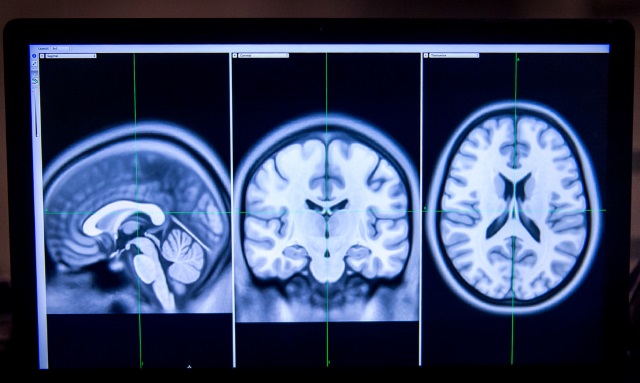A brain abscess is an infection that is generally severe and requires hospital admission until it is resolved. In this post, the experts in neurosurgery from Instituto Clavel, tell you why this disease occurs, what its symptoms are and the most effective treatments.
Throughout our lives, we are exposed to a variety of illnesses, viruses and infections, among many other issues. Infections can develop anywhere in our anatomy, including the brain. The most frequent type of infection in this part of our body is known as a brain abscess or cerebral abscess.
A brain abscess occurs as a consequence of the accumulation of pus inside the brain. This collection of pus is due to an infection, usually bacteria or fungi. It can occur at any age, and risk of developing a brain abscess is higher in males.
There can be one abscess or there can be several, if it appears in different locations. First, there is an inflammation of the brain, which is known as cerebritis, but as the condition evolves, it creates a cavity that fills with pus and tends to grow progressively.
Most cases are severe and require hospitalization and surgery. This is essential because the infection can cause excessive intracranial pressure and become life threatening.
Causes of brain abscess
Among the main causes for germs reaching the brain tissue and producing an abscess, we can highlight the following:
- An infection located in another part of the body (lungs, bones, skin, etc.) can spread through the blood to reach the brain tissue and cause an abscess. This is what is called a hematogenous spread.
- Severe head injury with deep open wounds can also lead to this problem. This is a direct entry infection.
- But, without a doubt, the most frequent cause is the extension from an adjacent localized infection in the head. In this case, we refer for example to uncontrolled sinusitis, ear or oral cavity infections.
Symptoms of brain abscess
The most common symptoms are those of an infection: fever, general discomfort, tiredness, etc. In addition, as it is an internal mass located in the brain it can cause other problems:
- Headaches
- Rigid neck
- Nausea
- Vomiting
- Difficulty speaking
- Loss of mobility in arms and legs
- Changes in vision
In the most severe cases it can also cause loss of consciousness and seizures. Symptoms may appear slowly, over several weeks, or appear suddenly.
How is it diagnosed?
Due to the severity of this infection, at Instituto Clavel we want to highlight the importance of a quick diagnosis to be able to eliminate the abscess. Diagnostic images such as cranial CT and MRI offer the best visualization of the abscess.
In addition, a puncture biopsy of the abscess material is also usually performed to identify the specific cause of the infection, in order to decide the most effective treatment. An examination of the central nervous system and the brain will also be carried out to check their condition and the level of intracranial pressure.
The best thing to do to get an accurate assessment is to put yourself in good hands, since this injury is not easily detected and can be confused with other types of pathologies such as brain tumor.

Treatments for brain abscess
The treatment of this infection will vary depending on its severity. However, since it is a medical emergency, it will require hospital admission in most cases to avoid risks until the patient's situation is stabilized.
In the following cases, the recommended treatment will be antibiotics with periodic monitoring by by CT or MRI scans:
- Abscess smaller than 2 cm.
- Multiple abscesses (these are infrequent).
- Abscess located very deeply in the brain.
- Abscess accompanied by meningitis.
The antibiotic treatment chosen will depend on the results of the biopsy, the age of the patient and the patient’s medical history.
However, as we indicated at the beginning, there will be other patients for whom it will be necessary to carry out a surgical intervention to remove the lesion. These are some of the most delicate situations:
- Increase of intracranial pressure.
- Abscess larger than 2 cm.
- Risk of rupture of the abscess.
- Abscess with gas, which some types of bacteria can cause.
- Abscess which does not shrink after medical treatment.
In these cases, the surgical method most appropriate for each patient -- aspiration and drainage, open surgery, etc. -- will be used according to the location and characteristics of each abscess.
At Instituto Clavel we have a team of neurosurgeons with extensive experience in this type of intervention and a high rate of success. Would you like more information? Contact us and we will address your case in a totally personalized way.
Categories: Brain treatments, Brain pathologies, Techniques, Innovation
